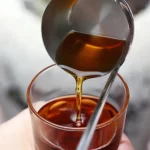Marsala wine has quickly become a favorite for many people and is helpful for both drinking and cooking situations. However, some people may find its sweetness a bit too potent or have no source for this wine.
Never fear! There are many alternatives that you can use that will produce a similar cooking texture. Here’s what you need to know about Marsala wine and its many substitutes.
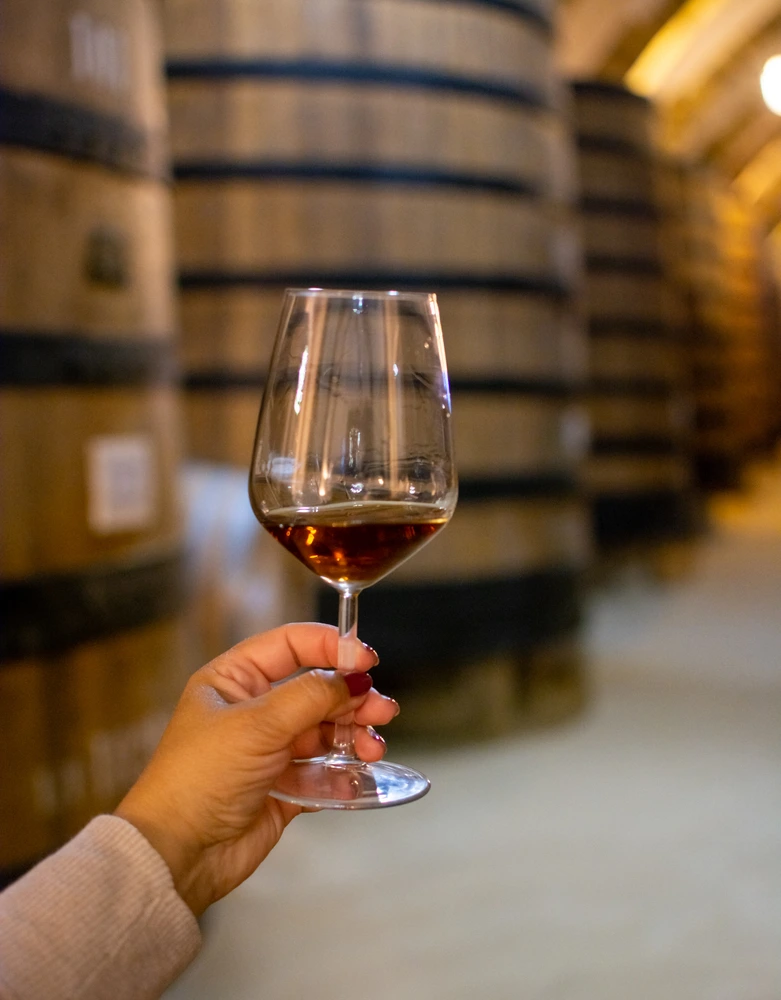
What’s Marsala Wine?
Marsala is an Italian wine produced primarily in Sicily near the small town of Marsala.
Over the years, it has become especially popular as a cooking wine because it possesses a surprisingly rich array of different undertones and flavors. These include brown sugar, tamarind, vanilla, and even apricot. Others may notice a slightly oak or tobacco-rich flavor in some Marsala blends.
These unique undertones help to make this a very popular and helpful wine for cooking situations.
It can blend well with a myriad of different food options, including various types of meat, vegetables, and much more. It is also fortified to help bring out a variety of different flavors and tastes.
Expect mostly white varieties of Marsala, though red grapes may sometimes be added to a few different types.
Try to seek out an option made with Grillo, Catarratto, Inzolia, or Damaschino white vines, as these varietals produce one of the best Marsala blends available.
You can anticipate a surprising undercurrent of Morello cherry, apple, walnuts, honey, and even a bit of licorice when of the highest vine quality. The sweetness level will vary, depending on the Marsala, but most are at least semi-sweet.
What’s The Difference Between Marsala Wine And Other Wines?
Marsala wine produces such a distinctive flavor because it is not only made with Sicilian grapes but uses an aging process called solera.
This Italian-style aging method requires a very long aging period, including regular checkups and adjustments to the overall mix and blend. While this method takes some time to get right, the ultimate result is a unique and beloved wine option.
This aging process also combines with the Grillo grape, as mentioned above, to produce a rather complex flavor.
The Grillo grape is one of the most distinctive options on the market and creates an undercurrent of different flavor options. The cooked grape also produces an amber coloring that helps to make Marsala a slightly different and engaging flavor option for many cooking fans.
Critically, Marsala wine is almost always fortified with brandy or a similar distilled option, using grapes also produced in the same area. The idea here is to expand the overall flavor portfolio of this blend and make it more diverse and engaging.
As a result, it is one of the most popular options for cooking and is rapidly becoming a favorite wine in many regions around the world.
What You Should Know When Cooking With Marsala Wine
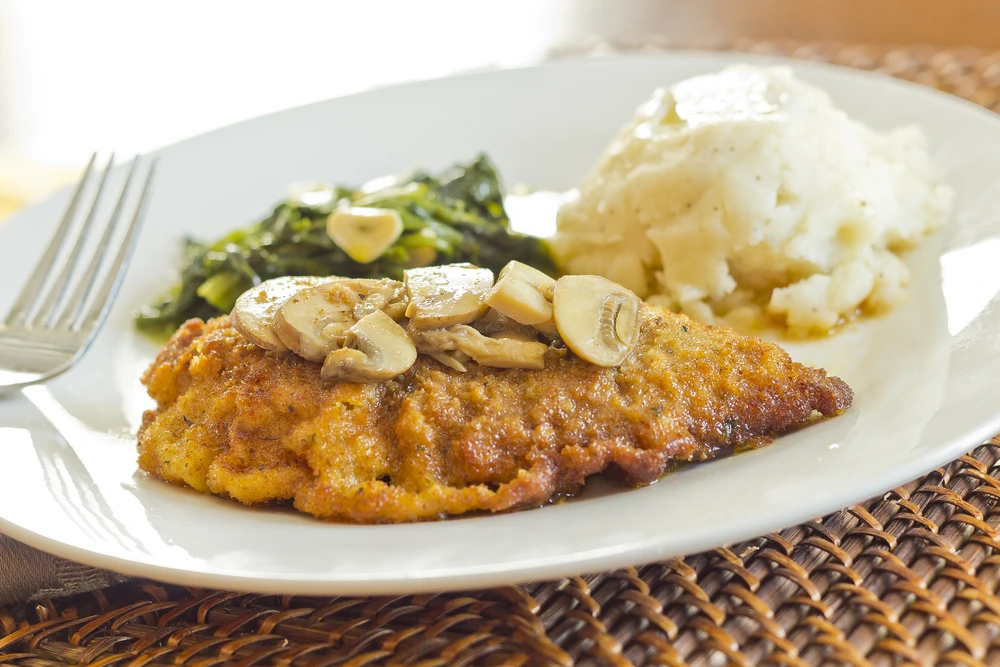
Marsala wine is a surprisingly long-lasting wine after you open it. After being open for as long as a month, it should retain most of its flavors!
However, it would be best to put it in a cool and dark place with minimal sun. Keep the temperature at no more than 70 degrees Fahrenheit and the humidity level as low as you can get. Try to put in a dehumidifier and keep the moisture at no more than 20%.
Typically, Marsala ranges from dry to sweet, though you may find semi-sweet varieties available.
Most people who enjoy Marsala wine for cooking use it as a sweet option, though dry wines are usually better for meaty and hearty dishes.
Dry wines also go well with mushrooms, turkey, beef tenderloin, and veal, providing a slightly nutty flavor that helps to produce a solid and rich variety of tastes.
Sweet wines go well with desserts, including multiple cakes, cookies, and much more. Chocolate mousse is an excellent dish to add sweet wines, as it can blend very quickly with the creamy textures.
Tiramisu also does well with a Marsala wine, creating the kind of aromas and tastes that blend well for your needs and produce a high-quality aftertaste for most meals.
Colors come in red, amber, and gold, and each should be suitable for most cooking situations.
The quality of the wine doesn’t have to be incredibly high when cooking because the flavors will come out richly while cooking your foods. Heating the wine naturally caramelizes it and removes much alcohol, so the potency doesn’t usually matter either. Drinking preferences will vary on a person-to-person basis.
Related: Pairing wine with chicken Marsala.
Marsala Wine Substitutes
Marsala wine substitutes come in two different varieties: alcoholic and non-alcoholic.
Both types can be used to cook, though some may not be as good as just a drink. We’ll include a few brand suggestions in the alcohol section that help make your purchase easier.
Alcoholic Substitutes To Use For Marsala Wine
Try one of the many substitutes below if you want an alcoholic drink that you can enjoy separately from cooking.
Some of these options will have extra items added: feel free to remove these if you just want to enjoy an alcoholic drink without excessive flavoring added.
Sauvignon Blanc and Brown Sugar
Most white wines should be a close match to Marsala wine, especially if you make a few simple adjustments.
We strongly suggest you mix your sauvignon blanc with the following flavor combinations and ratios to create a close Marsala substitute: blend one cup of sauvignon blanc with one-half of cup brandy, one-half tablespoon of brown sugar, and a pinch of salt. Mix these ingredients well and use them as a tasty chicken or meat flavoring.
Try Dragonette Cellars Happy Canyon for great results.
Pinot Noir
Pinot Noir may work as a marsala wine substitute in a pinch, especially as a replacement drink.
If you’re cooking with Pinot, though, you may want to add a small amount of sugar (no more than a teaspoon or so) to add a sweeter taste. It will also mix well with various meat dishes but is probably best used on chicken or pork.
Finally, try out Kosta Browne Sta. Rita Hills Pinot Noir for a flavorful and rich wine.
Port Wine
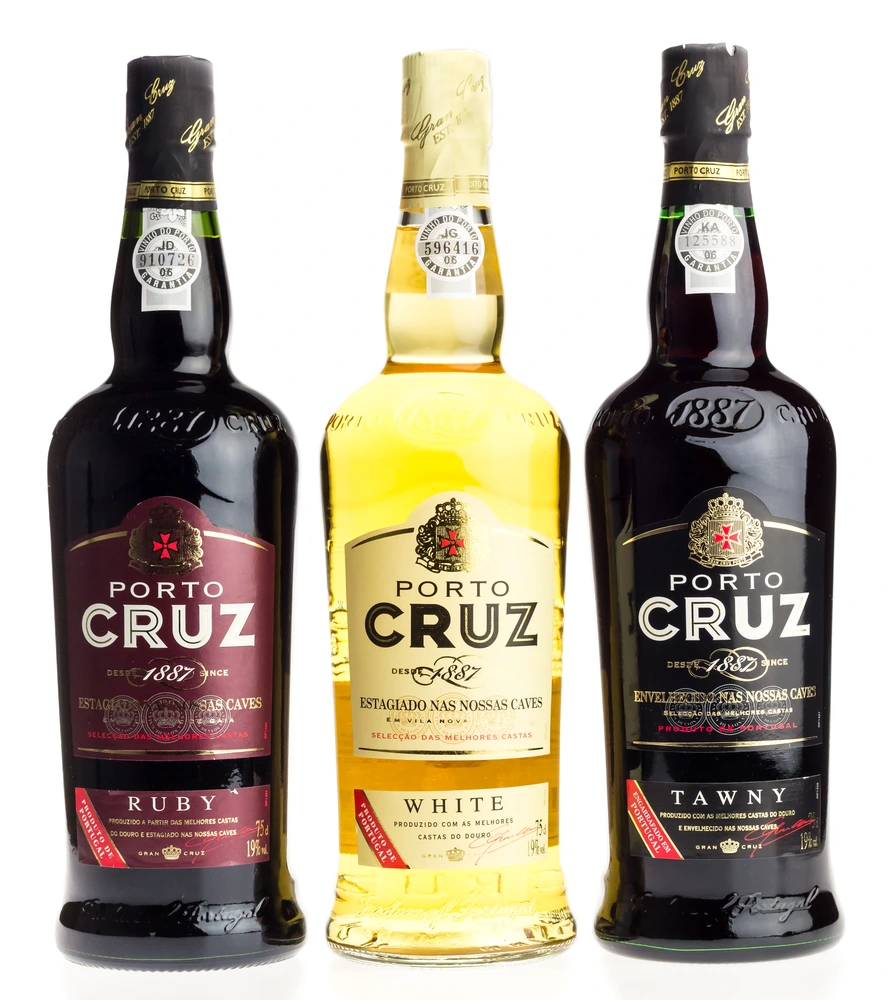
Though this option may be a little costly for some people, it works well when making various chicken-based dishes.
There’s just something about this wine’s texture that works beautifully for this meat. You may also enjoy it as a mixture of multiple types of sweet desserts. We prefer the dry variety when cooking.
This is an expensive substitution for Marsala wine, but it makes a good alternative when you need to finish creating that Chicken Marsala dish! Port wine is delicious as a base for many sweet desserts, but you can also add a dry, semi-dry, or white port to savory dishes when replacing Marsala.
Dow’s Vintage Port is an excellent pick for most meals.
Sweet Riesling and Moscato
When making desserts with wine, you want to find a sweet variety that adds a touch of flavor to your meals without overpowering them.
In this situation, Sweet Riesling and Moscato wines may work very well. They add a little of sweetness to desserts and bring out their texture and density. These sweeter white wines are a good substitute for Marsala for desserts.
Try out a Hermann J. Wiemer Late Harvest Riesling or G.D. Vajra Moscato d’Asti.
Related: A good value sparkling: Moscato d’Asti.
Madeira
Though you might not immediately think of a Madeira wine when debating a Marsala substitute, it typically has a similar taste profile and is usually easy to mix with a variety of different dishes. We love it when added to a stir fry or chop suey, particularly as a frying ingredient.
One of the best alcoholic substitutes for Marsala is Madeira wine. It offers a similar taste profile to Marsala and can be easily sourced in most stores in your local area. Madeira is a fortified wine and any blend produced by D’Oliveiras should work well for your cooking needs.
Dry Sherry
While sherry isn’t always an excellent replacement for some wine options, it works well for a Marsala.
Avoid cooking sherries (ironically) as they usually don’t have the same flavor combination as a Marsala. A dry option is typically best because it maintains its natural flavor without adding unnecessary undertones.
A Hidalgo Alameda Sherry is a good option for many buyers.
Vermouth
This unique fortified wine is a popular option for many meals and can produce a surprising array of different aromas and tastes.
Chicken and lamb dishes often go very well with vermouth, especially if you add a little dry sherry in a balance that feels right for your taste and preference. Though many vermouth brands may work well, Carpano is a superior option for most.
Sherry Wine From Spain (Amontillado and Pedro Ximenez)
These sherry wine options come from Spain and slightly tweak this flavor, making them a great choice when replacing either sweet (Pedro Ximenez) or dry (Amontillado) Marsala wines.
Try out a Lustau Amontillado or Pedro Ximenez when choosing this option. This choice should provide the unique flavor combinations you want without any difficulties.
Dry White Wine
Just about any dry white wine should work well as a Marsala in any type of savory dish that doesn’t need a ton of sweetness.
Try it when producing stir-fry or frying up any chicken or beef. You may add a little bit of cognac or brandy if you want a sweeter flavor. The diversity of options here includes Riesling, Pinot Gris, and Chardonnay, each with different appropriate brands to choose from.
Brandy Combinations
Brandy will mix well with various ingredients to produce a delicious replacement for Marsala.
We already talked about brandy and sauvignon blanc (or other white wines) elsewhere, so we won’t dwell on that pick here. However, we also think that one teaspoon of brandy mixed with a one-third cup of white grape juice works very well.
Again, a Philbert Rare Cask should do the trick.
Food Pairing Marsala Wine Substitutes
If you’re using your Marsala wine substitute for cooking, it is essential to focus on the dishes we suggested (if any) with each replacement option.
If we didn’t add any there, avoid using that choice for cooking. However, just about any Marsala wine substitute will pair well with meaty dishes, asparagus, broccoli, and chocolate desserts.
Sherry, Madeira, and Port are the best cooking pick for your Marsala wine substitutes. However, non-alcoholic options may work well for you as well.
Non-Alcoholic Substitutes To Use For Marsala Wine
When preparing various meals and dishes, the following substitutes may be suitable for some people.
A few of these choices will be drinkable, but many will be a unique combination of various ingredients that simulate a Marsala taste. Read these descriptions to decide which is right for you.
Lemonade
Though not familiar, some types of low-sugar lemonades may work well as a replacement for Marsala wine.
You can use it in various chicken dishes or some beef items. Try to use a small amount of lemonade or even replace it with a lime-based drink to produce a rich flavor closer to Marsala wine and different enough to make it worth trying out with your kids or others.
Balsamic Vinegar and Sugar
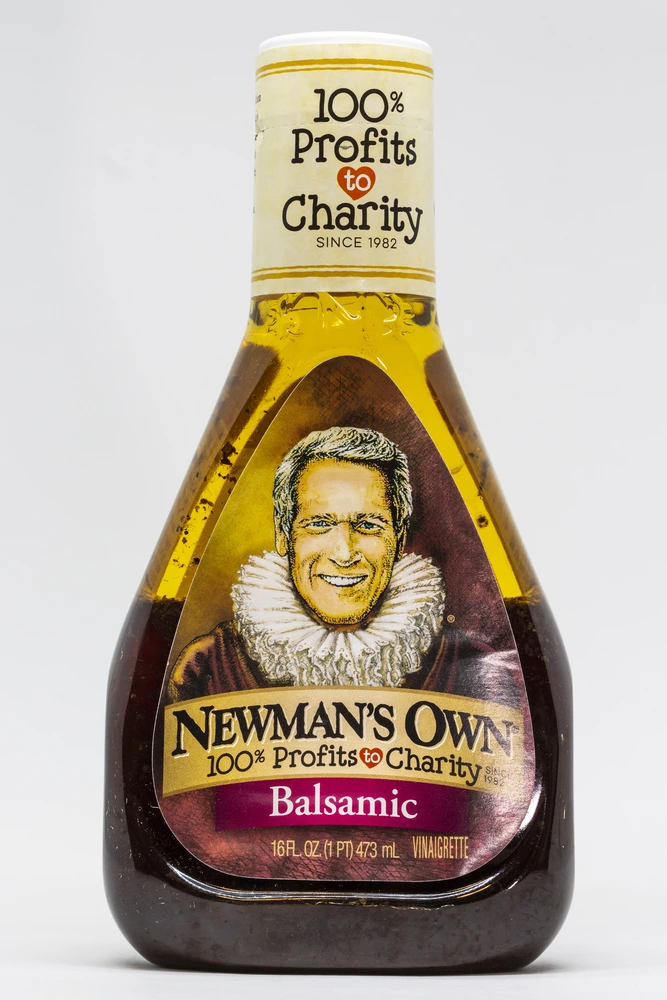
Balsamic vinegar is one of those ingredients that work well in savory dishes.
A balsamic reduction is often a good choice for those who want a slightly less intense balsamic taste. Add around one teaspoon of sugar per cup of balsamic vinegar to add the sweet taste typical with Marsala wine. Some people prefer honey to sugar, which works well for vegetable-based dishes.
Sage, Rosemary, and Figs
Few herbs or cooking ingredients get quite the mileage as sage and rosemary.
These items add such a rich array of flavors and undertones that they are perfect for various cooking situations. When combining them with figs (puree your ingredients to a fine liquid), you produce a tasty Marsala wine substitute that should go well with just about any meal.
Puree the figs first, then add the herbs and spices by the teaspoon until you get the taste you want.
Red Grape Juice
Whether you prefer red or white grape juice for your Marsala substitute will vary based on your preference and taste.
When using red grape juice, try to add a touch of sherry vinegar and a little vanilla extract for your meat and vegetable dishes. You can also use red grape juice for cakes and other decadent desserts, especially if you enjoy cranberry juice.
Cranberry juice mimics the taste of red grape juice but has a slightly more bitter overall flavor.
White Grape Juice
White grape juice should be a good enough substitute for Marsala wine, which will work well for many people’s tastes.
However, you can improve this option by adding one-quarter cup of white grape juice with two tablespoons of sherry vinegar and one tablespoon of vanilla extract.
If you read the previous section, you know that this combination of ingredients was also suggested for red grape juice. It helps to make both types suitable for rich and savory meals.
Balsamic Vinegar and Figs, Prunes, or Plums
To create an excellent Marsala wine combination, balsamic vinegar can combine with just about any red fruit (figs, prunes, and plums are the best choice here).
First, simmer the fruits over low heat and strain them through a sieve to remove any seeds of core materials. Once you add the balsamic vinegar (by teaspoon to meet your taste), you can use it in just about any dish, particularly pork, as it brings out the textures of this meat very well.
Homemade Vegetable or Chicken Stock
Vegetable or chicken stock can produce some of the flavors you’d get from a Marsala wine, creating the creamy texture you want but not precisely recreating the flavors.
So here’s a trick: add some balsamic vinegar to add a little bit more of a Marsala flavor. This option works well in various soups and gravies and is a unique choice that many people will enjoy.
- Shrimp Cocktail (and More) Wine Pairing Guide - 09/06/2022
- What Wine Serving Sizes Look Like: Standard Size and More - 08/06/2022
- How Much Sugar is in Wine: Glass and Bottle Sugar Content - 08/06/2022



